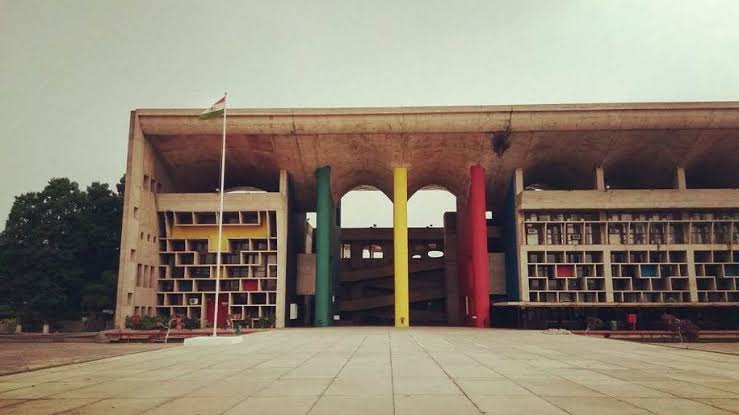


The Punjab and Haryana High Court recently comprising of a bench of Justice Vivek Puri observed, “a solitary act of adultery or an isolated lapse of wife will not disentitle the wife to claim maintenance”. (Amit Kumar Yadav v. Suman Devi and others).The bench dismissed the plea of the husband seeking to set aside an order of a family court in Rewari. The Rewari family court in October 2021 had declined his (petitioner’s) application for additional evidence to prove the alleged writing of his wife through a handwriting expert as she admitted about her “adulterous relationship” in writing in 2005.The respondent-wife instituted a petition under Section 125 of the Code of Criminal Procedure for self and on behalf of three minor children alleging that her marriage was solemnized with the petitioner and he has refused and neglected to maintain the respondents.The petitioner has resisted the petition, inter alia, on the score that the respondent no.1 was having an adulterous relationship and has admitted this aspect in terms of the writing dated 19.05.2005. He has even sought to dispute the paternity of the respondents no.2 to 4.After the conclusion of the evidence of the petitioner, he had moved an application for additional evidence for examining a handwriting expert to prove the aforesaid writing. The application has been resisted by the respondents. It has been alleged that the aforesaid document was well within the knowledge of the petitioner and in his custody. He has been given sufficient opportunity to produce evidence and has intentionally and deliberately moved the present application at a belated stage to fill up the lacuna in the case.Learned counsel for the petitioner contended that in terms of the writing dated 19.05.2005, the respondent no.1 has admitted the fact that she was carrying pregnancy, the child in the womb does not belong to the petitioner, the same belongs to someone from her village Bapas and she wants to abort the child of her own wish. It has been further submitted that during the course of her cross-examination, the respondent no.1 has denied the fact of such writing. The petitioner now intends to prove the writing by examining a handwriting expert.On the contrary, learned counsel for the respondents has argued that though the respondent no.1 is disputing the execution of any such writing, but the same was allegedly executed as back as on 19.05.2005 i.e. about a period of 12 years prior to the institution of the petition under Section 125 of the Code. Even subsequent to the said alleged writing, the petitioner and respondent no.1 had been cohabiting and three children have been born from the wedlock. The allegations with regard to adultery are stale and the subsequent events indicate that the said alleged act has been condoned by the petitioner.
Courts Observation and Judgment
The bench at the very outset observed, “Although, a discretion is vested in the trial Court to act as the exigencies of justice and circumstances of the case may require to permit a party to lead additional evidence, but the same must appear to be essential for the just decision of the case. However, it has also to be borne in mind that such power cannot be exercised to permit any of the parties to fill up lacuna in its case. There must be sufficient and reasonable material to justify for exercise of the discretionary powers vested in the Court.In the instant case, no justified reason is made out, which prevented the petitioner to initiate the exercise of proving the writing by examining a handwriting expert, particularly because the respondent no.1 during her cross- examination had denied the execution thereof. The petitioner has displayed inaction for a period of two years, when the case was pending in the trial Court for his evidence."The bench dismissing the petition remarked, "The maintenance can be declined, in the event, it is proved and established that the wife is living in adultery. “Living in adultery” means a continued adulterous conduct and not a single or occasional lapse. Solitary act of adultery or on isolated lapse of wife, will not disentitle the wife to claim the maintenance. The burden of proof of un-chastity is on the husband. Unless it is found that at the relevant point of time, the wife was actually living in adultery, she is not disentitled to claim maintenance. The material on record must indicate that the wife was living in adultery shortly before or after the petition of maintenance has been instituted."The bench taking note of the same observed, "It is not the case of the petitioner that shortly prior to the institution of the petition or subsequent thereto, the respondent no.1 is continuously living in adulterous life. The course of adulterous conduct must not be a matter of past, but must be continuing at the time of presentation of the petition. The stale alleged act of adultery is indicative of the fact that such act has been condoned and consequently, the allegation to the effect that the respondent no.1 was living in adulterous life way back in the year 2005 cannot be termed to be a circumstance, which may be significant enough to dispute the claim of the respondents to claim maintenance from the petitioner. This is also a significant circumstance which indicates that the proposed evidence is not essential to decide the controversy. In these circumstances, no illegality or irregularity is made out in the impugned order passed by the Court below, which may call for interference by this Court."
TAGS: Maintenance plea adultery Punjab and Haryana High Court Justice Vivek Puri Amit Kumar Yadav v. Suman Devi family court handwriting expert